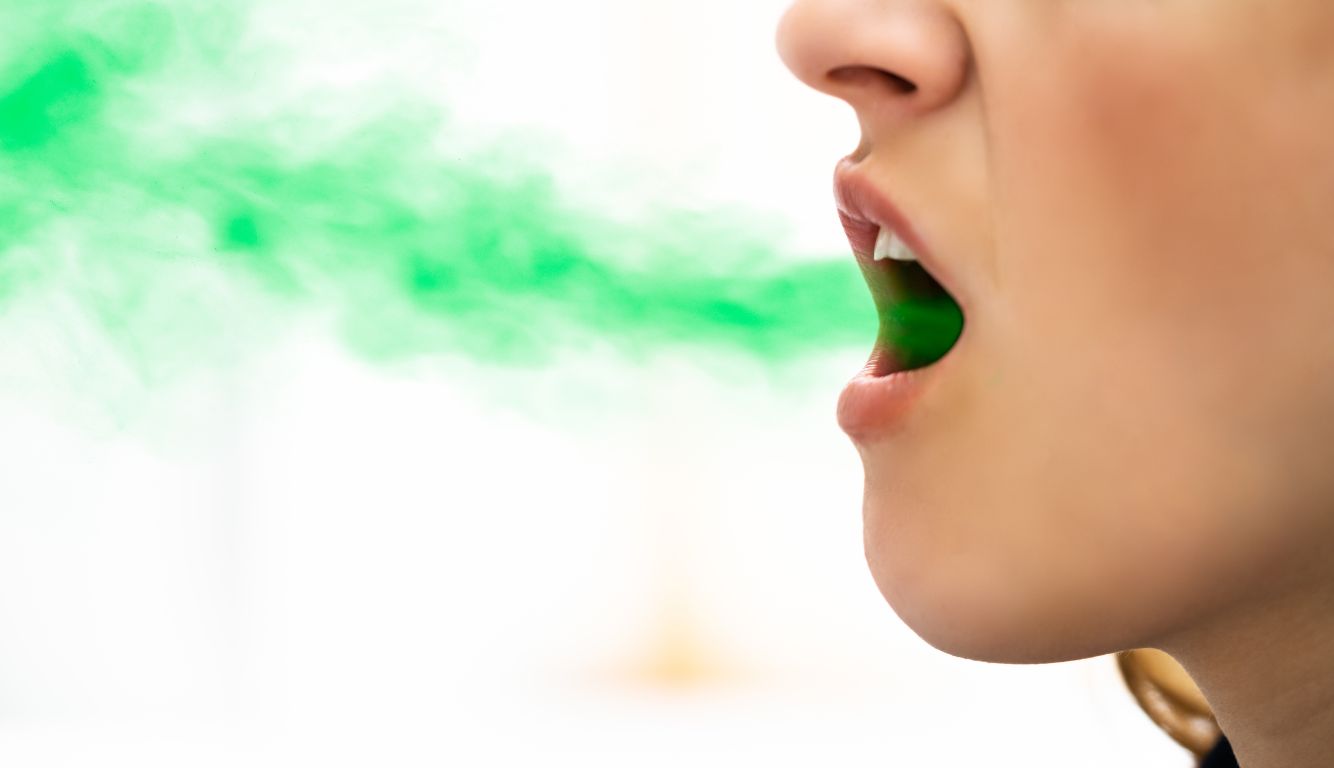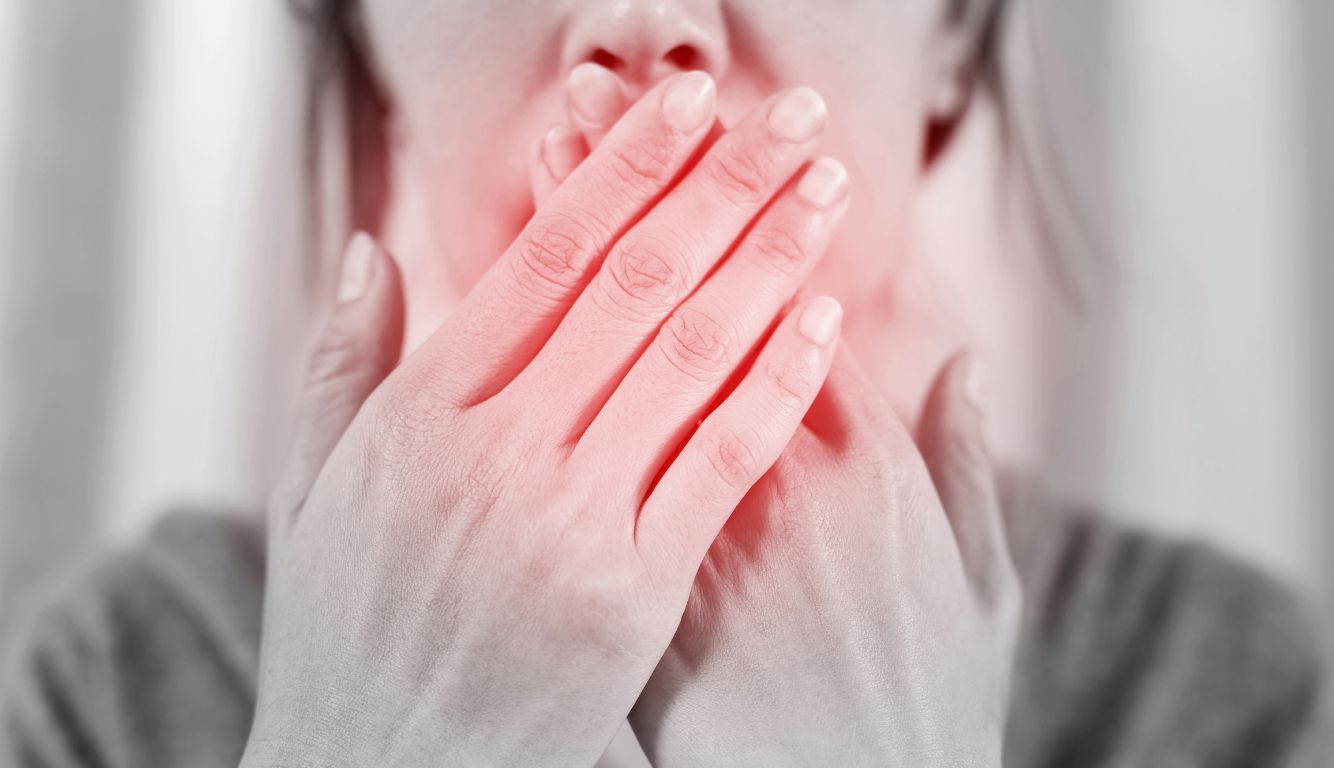How Do I Get Rid of Bad Breath?

Bad breath, or halitosis, is a common concern that many people experience, and it’s often a source of embarrassment and anxiety. The causes can range from dietary habits to oral hygiene practices, and in some cases, it may signal underlying health conditions. Addressing the issue requires an understanding of the factors contributing to mouth odor and implementing strategies to mitigate them. Good oral health habits are crucial in preventing the build-up of the bacteria responsible for bad breath.
Dental professionals play a vital role in diagnosing and treating halitosis. Regular check-ups can detect problems that may lead to breath odor, such as gum disease or dental decay. Moreover, lifestyle modifications are often recommended as part of a comprehensive approach to combat bad breath. This may include dietary changes, increasing water intake, quitting smoking, or modifying any other habits that could be contributing to the problem.
Key Takeaways
- Maintaining good oral hygiene is essential for preventing bad breath.
- Regular visits to the dentist are important for diagnosis and treatment of halitosis.
- Lifestyle changes can have a significant impact on reducing mouth odor.
Understanding Bad Breath
When we discuss bad breath, also known as halitosis, we are tackling an issue that affects not only oral health but also confidence and social interactions. Our focus here is to explore its causes, the importance of diagnosing oral health issues accurately, and the influence of diet and lifestyle.
Causes of Halitosis
Halitosis is often due to bacteria in the mouth breaking down food particles and producing foul-smelling gases. Poor oral hygiene can lead to plaque accumulation, contributing to bad breath. Conditions such as xerostomia (dry mouth) reduce saliva production, which normally helps clean the mouth. Tobacco products and certain foods like onions, garlic, and spices also play a significant role.
- Dental issues: Gum disease and tooth decay are common culprits.
- Medical conditions: Sinusitis, respiratory infections, diabetes, liver or kidney disease can influence our breath.
- Diet choices: High sugar intake and certain diet elements like coffee, alcohol, and strong foods can affect breath.
Diagnosing Oral Health Issues
Diagnosing the root causes of halitosis is critical. A dentist or periodontist can assess symptoms and take a comprehensive medical history to identify any dental hygiene or health issues. Here are key factors involved in the diagnosis:
- Visual examination: Checking for signs of gum disease, cavities, and plaque buildup.
- Medical history: Discussing use of medications, past health conditions, and lifestyle habits that might contribute to the condition.
The Role of Diet and Lifestyle
Our lifestyle choices, including what we eat and drink, heavily impacts our breath. For instance, dietary habits involving strong spices, caffeine, or high sugar content can result in bad breath. Here are actionable tips:
- Hydrate often: Drinking water stimulates saliva production.
- Limit certain foods: Decrease intake of onions, garlic, and spices.
- Avoid tobacco and alcohol: Both substances can lead to dry mouth and halitosis.
Daily Oral Hygiene Practices

In maintaining fresh breath, we emphasize the importance of daily oral hygiene practices. Effective brushing, flossing, and product selection are pivotal in preventing bad breath caused by dental issues.
Brushing and Flossing Techniques
Brushing
It is essential to brush our teeth at least twice a day using a fluoride toothpaste. Hold the toothbrush at a 45-degree angle to the gums and use gentle circular motions to remove plaque effectively without causing gum damage.
- Duration: Brush for at least two minutes.
- Coverage: Reach all surfaces of the teeth, including the back molars.
- Tongue: Gently brush the tongue to remove bacteria and food particles.
Flossing
Flossing daily helps to remove plaque and food particles between teeth where a toothbrush can’t reach.
- Technique: Use a C-shape motion to hug the tooth with the floss.
- Gentleness: Avoid snapping the floss into the gums.
Utilizing both brushing and flossing techniques can significantly reduce the risk of gum disease, cavities, and tooth decay.
Enhancing Saliva Production
Saliva is nature’s way of cleansing our mouth and controlling the growth of bacteria. To combat dry mouth and ensure adequate saliva production:
- Stay Hydrated: Drinking plenty of water throughout the day keeps the mouth hydrated.
- Chew Sugar-free Gum: This stimulates saliva production.
- Green Tea: Drinking green tea might contribute positively due to its antimicrobial properties.
Regular saliva production helps prevent tartar build-up and protects against gingivitis and periodontitis.
Choosing the Right Products
Selecting the appropriate oral care products is vital for good dental hygiene.
Toothpaste and Mouthwash: Opt for products containing fluoride and those that are clinically proven to fight plaque and freshen breath.
Toothbrush: Use a soft-bristled toothbrush to prevent damage to our gums and enamel.
Additional Tools:
- Dental Floss: Aim for unwaxed or pre-threaded floss picks for easier use.
- Tongue Scraper: Incorporate tongue scraping into our routine to remove a coating that may harbor odor-causing bacteria.
Incorporating these practices in our daily routine will contribute to a fresher breath and overall oral health.
Professional Dental Care and Lifestyle Modifications

In combating bad breath, we emphasize the importance of professional dental care and positive lifestyle changes. These approaches are critical for maintaining oral hygiene and overall health.
Regular Dental Check-Ups
We schedule periodic dental visits for plaque and tartar removal. This routine is vital as plaque buildup can lead to gum disease, a common cause of bad breath. During these check-ups, the dentist can diagnose and treat infections or conditions like periodontitis that contribute to bad breath.
Treatment for Underlying Conditions
Many cases of bad breath are related to underlying health issues. We seek medical treatment for conditions such as diabetes, kidney disease, or liver disease, all of which can affect breath odor. It’s about more than just oral health; disease management forms an integral part of eliminating bad breath.
Adjusting Habits and Diet
We make several lifestyle changes to improve breath quality. These include:
- Smoking cessation: We quit smoking and avoid tobacco products to combat bad breath as these habits are detrimental to oral and overall health.
- Alcohol consumption: Moderate our alcohol intake, since excessive drinking can contribute to bad breath.
- Diet modification: We focus on a balanced diet, reducing foods with strong odors, and increasing intake of substances like green tea, which may positively affect breath smell.
By addressing these points, we take comprehensive steps toward fresher breath and improved well-being.
📞 Contact Kaufman Dentistry Today
Give us a call at (310) 838-7780 to schedule your appointment and take the first step towards a stunning smile.
You can find us at 10760 Washington Blvd., Culver City, CA 90232. We look forward to welcoming you to our practice and helping you achieve the smile of your dreams!
Frequently Asked Questions
In this section, we answer some of the most common questions about tackling bad breath, providing clear and effective guidance.
What are effective home remedies to combat bad breath?
We recommend rinsing with a mixture of water and hydrogen peroxide to reduce bacteria in the mouth. Chewing fresh parsley or mint leaves can also neutralize odors, as these herbs have natural breath-freshening properties.
Which foods or drinks can help eliminate bad breath?
Drinking green tea or water throughout the day can assist in washing away food particles and bacteria. Foods high in vitamin C like oranges and berries promote an environment that is less favorable for bad breath-causing bacteria.
What could be the cause of persistent bad breath despite good oral hygiene?
Persistent bad breath might be a sign of an underlying medical issue, such as gum disease, a sinus infection, diabetes, or liver and kidney problems. We advise consulting a healthcare professional if good oral hygiene does not improve bad breath.
How can you cure bad breath originating from the stomach?
Bad breath from the stomach can be addressed by treating the underlying cause. This may include adjusting your diet, using medications for conditions like acid reflux, and ensuring proper digestion. A doctor’s visit is essential to pinpoint and treat the specific issue.
Are there any quick solutions to freshen breath instantly?
For an immediate solution, we can chew sugar-free gum or suck on sugar-free mints to stimulate saliva production and temporarily mask odors. Using mouthwash or breath sprays can also offer quick temporary relief.
What types of treatments are available for chronic halitosis?
Professional treatments for chronic halitosis include special mouthwashes and toothpastes, dental cleanings to remove plaque and tartar build-up, and treatment of any dental diseases. If the cause is medical, the appropriate treatment will target the specific medical condition.
